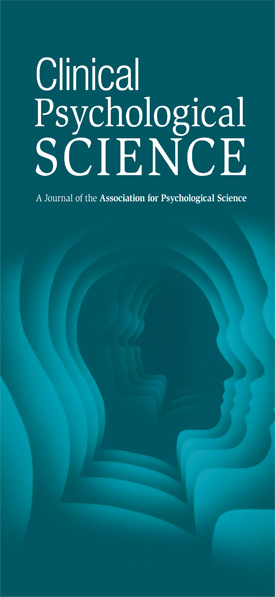Clinical Psychological Science – A New Journal
 The Association for Psychological Science is pleased to announce the launch of Clinical Psychological Science (CPS), a unique new journal in scope and mission.
The Association for Psychological Science is pleased to announce the launch of Clinical Psychological Science (CPS), a unique new journal in scope and mission.
Under Founding Editor Alan E. Kazdin, Yale University, CPS will present cutting-edge work from psychological science, broadly conceived, as well as from the full range of related disciplines (e.g., genetics, neuroscience, psychiatry, public health) that contribute to clinical study. CPS‘s emphasis on integrating diverse scientific perspectives and on boundary-crossing research distinguishes it from traditional journals and places it at the forefront of an exciting new era in clinical science. (See the complete Aims and Scope for a fuller description of the journal.)
Kazdin is joined by a distinguished team of Associate Editors — Tyrone D. Cannon, University of California, Los Angeles; Emily A. Holmes, University of Oxford; Jill M. Hooley, Harvard University; and Kenneth J. Sher, University of Missouri — and an eminent group of Consulting Editors. In their wide-ranging achievements and areas of expertise, this remarkable team reflects the breadth and depth of CPS‘s distinctive mission.
Clinical Psychological Science will begin accepting submissions in the spring of 2012 (stay tuned), with plans to publish papers online soon after acceptance. The first full issue of the journal will be published January 2013.
Watch for Alan Kazdin’s editorial and interview in the March Observer, and visit the Clinical Psychological Science page for more information.





APS regularly opens certain online articles for discussion on our website. Effective February 2021, you must be a logged-in APS member to post comments. By posting a comment, you agree to our Community Guidelines and the display of your profile information, including your name and affiliation. Any opinions, findings, conclusions, or recommendations present in article comments are those of the writers and do not necessarily reflect the views of APS or the article’s author. For more information, please see our Community Guidelines.
Please login with your APS account to comment.